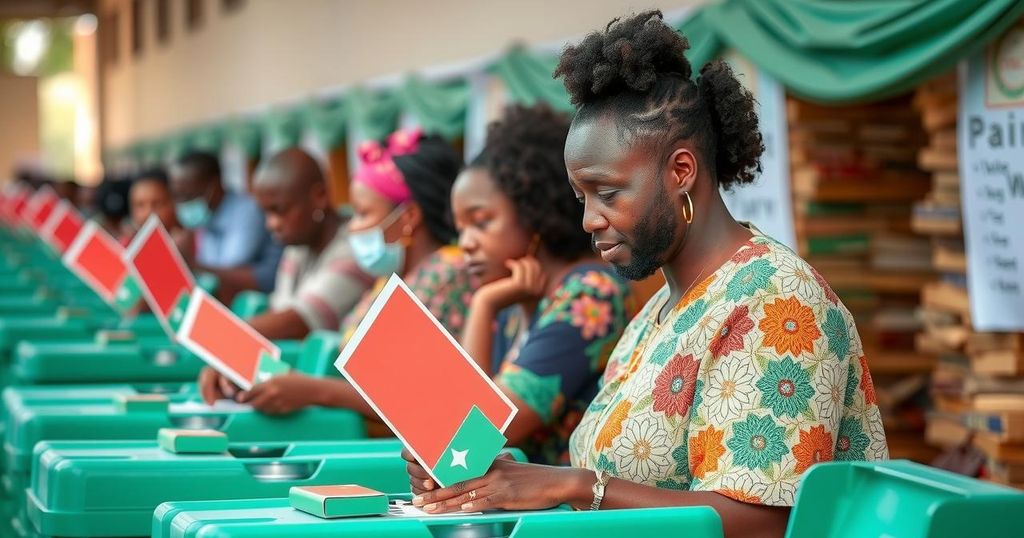Ghana’s elections opened on Saturday during a significant economic crisis, with 18.7 million registered voters facing limited options between Vice President Mahamudu Bawumia and former President John Dramani Mahama. Reports indicate that 82% of Ghanaians feel their nation is heading in the wrong direction amid high inflation and joblessness. The elections are critical for evaluating democracy and addressing pressing economic challenges.
On Saturday, polls opened for presidential and legislative elections in Ghana, marking a significant moment for democracy in a region grappling with political instability. Approximately 18.7 million registered voters will cast their ballots in an election characterized by economic turmoil, heightened by rampant inflation and widespread joblessness. The two main contenders—Vice President Mahamudu Bawumia of the ruling New Patriotic Party (NPP) and former President John Dramani Mahama of the National Democratic Congress (NDC)—have generated skepticism regarding their ability to effect meaningful change amid such challenges.
Historically, Ghana has been a symbol of democratic governance in West Africa, known for its peaceful electoral process. However, recent years have witnessed a severe economic downturn, prompting 82% of Ghanaians to express concerns about the country’s trajectory. The election, featuring 12 candidates, has coalesced around a two-person race, underscoring the limited options available to the electorate.
Vice President Bawumia, a Cambridge-trained economist, seeks to continue the NPP’s policies despite criticisms regarding their handling of the ongoing crisis. Conversely, Mahama advocates for a comprehensive reset of governance and other critical areas, underlining the urgency for reform. Voter engagement has been high as evidenced by vibrant campaign activities throughout the capital, Accra.
However, the overarching anxiety regarding the economy looms large, exacerbated by a prior default on foreign debt and an inflation rate that surged to 54% last year. While inflation has eased somewhat, many citizens continue to feel the strain as prices for essential goods remain elevated. In addition, the issue of illegal gold mining, locally termed “galamsey,” has emerged as a contentious topic, given its environmental repercussions and role in the economic suffering of many Ghanaians, leading to protests against the government’s inaction.
This election serves not only as a referendum on the current leadership but also on the resilience and future of democracy in Ghana, as citizens weigh the promises of change against the backdrop of economic hardship.
Ghana’s recent elections occur amid a significant economic crisis, which has led to widespread public dissatisfaction. Once celebrated as a beacon of democratic stability in West Africa, Ghana is now facing challenges including high inflation rates, rampant unemployment, and the detrimental effects of illegal mining. The election presents a critical opportunity for voters to address these pressing issues, with major political figures offering differing visions for future governance. The implications of this election extend beyond domestic concerns, potentially affecting regional stability given the current climate of violence and coups in neighboring countries.
The elections in Ghana reflect not only the immediate concerns regarding governance and economic recovery but also serve as a vital test of the country’s democratic institutions. With rising inflation and socioeconomic challenges, the outcomes of this election may significantly shape Ghana’s future direction. The contrasting platforms of the two leading candidates highlight the electorate’s quest for viable solutions amidst a backdrop of desperation and disillusionment.
Original Source: www.voanews.com






